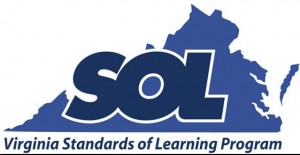Although their numbers are small, more Virginia parents are refusing to have their children take the state’s Standards of Learning tests, saying that test preparation takes away from true education.
In the 2013 -14 school year, 681 SOL tests were coded as parent refusals out of the nearly three million given, with Northern Virginia, Prince William County in particular, having the highest number.
Some parents are annoyed that teachers in public schools spend so much time teaching how to take the SOLs, which are used to measure a child’s educational standing and also rate how well school districts are performing.
“Students can spend up to one-third of their time of the school year preparing for the tests and that is wrong,” says Gabriel Reich, an associate professor of teaching and learning at Virginia Commonwealth University. Last year, he refused to allow his fifth-grade daughter to take the tests.
It isn’t really clear if parents and their children have the legal right to take the tests or not. If parents refuse, the child gets a “zero.” That might go against the school’s overall rating.
How it affects the student isn’t clear. Continual refusals could keep children out of special programs, such as ones for gifted students. But students from private schools, where SOLs are not usually taken, regularly transfer to public schools with little problem.
In different parts of the state, parents have formed grass roots groups to educate and support parents who have concerns that the mania for standardized testing is hurting true education.
Throughout the state, ad hoc groups are forming where parents can meet and plan refusals. In Richmond, RVA Opt Out meets every third Monday evening of the month and has tripled its attendance in the past several years.
Confronting standardized testing is in part a reaction of politicians who insist that standardized testing is a primary – if not the only – way to make sure that students are being educated properly. Such tests have been around for years but got a strong boost in former President George W. Bush’s “No Child Left Behind” program of 2002.
Standardized testing has also been used as a weapon against teachers’ unions. Some politicians have suggested that data from SOLs and other tests be collated and configured to give individual teachers ratings that could be made public – something teachers associations bitterly oppose.
What’s more, SOL and other similar data have been used for purposes that have little to do with education. Realtors often collect schools’ performance data to push home sales in certain neighborhoods to give for sale prospects snob appeal.
Critics say that multiple-choice testing doesn’t always reflect a student’s ability to think or show what he or she really understands. It also doesn’t reflect creativity to draw, paint or perform or write music.
The anti-testing movement is growing nationally. In one case in New York state, about 1.1 million children in grades three through eight typically take reading and math tests. Last year, about 67,000 children skipped the tests.
The push-back is growing.



